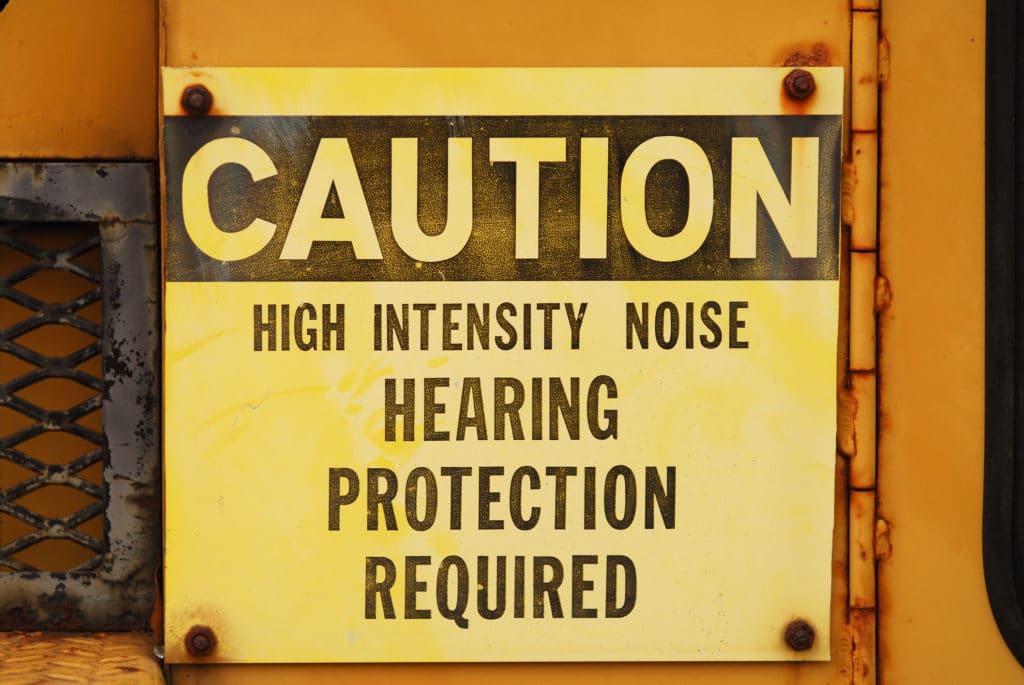Many of us know the experience of being in a loud environment – whether it’s a concert venue, crowded bar or a construction site – and leaving with our ears ringing and hearing muffled. While this feeling is usually temporary, over time, repeated exposure can cause irreversible damage to our ears.
How Sound Travels Through the Ear

In order to understand how loud sound can damage the ears, we first need to understand how sound travels through the ear and gives us the ability to hear.
Outer Ear
The outer ear is the part of the ear you can see. This part is responsible for funneling soundwaves from our environment into the ear canal and on to the eardrum.
Middle Ear
The eardrum is where the middle ear starts. It vibrates in response to soundwaves hitting it. These vibrations are then sent to the malleus, incus and stapes – three tiny bones that amplify the sound vibrations before sending them to the inner ear.
Inner Ear
The inner ear contains the cochlea, which is a snail shell-shaped structure filled with fluid. As vibrations travel through the fluid, they move tiny hair cells called stereocilia. The stereocilia are receptors that convert vibrations into electrical signals that the brain can understand.
Auditory Nerve
The electrical sound signals travel via the auditory nerve to the brain, where they are interpreted as meaningful sound like speech, music or warning signals.
What Causes Noise-Induced Hearing Loss
The average person is born with about 16,000 hair cells in their cochlea. When you’re exposed to loud sounds, they bend like blades of grass; if noise exposure is not too severe, they will stand straight again after a few hours or days, meaning your hearing loss is only temporary. However, if noises are too loud, it can cause the cells to die, and once they die, they do not regenerate.
Experts estimate that 30 to 50 percent of hair cells can be destroyed before changes in hearing can be detected by a hearing test. This means that by the time you notice you have hearing loss, it is imperative to seek treatment and take steps to prevent future damage.
For more information about the causes of hearing loss or to schedule a hearing test, call ENT of Georgia today.